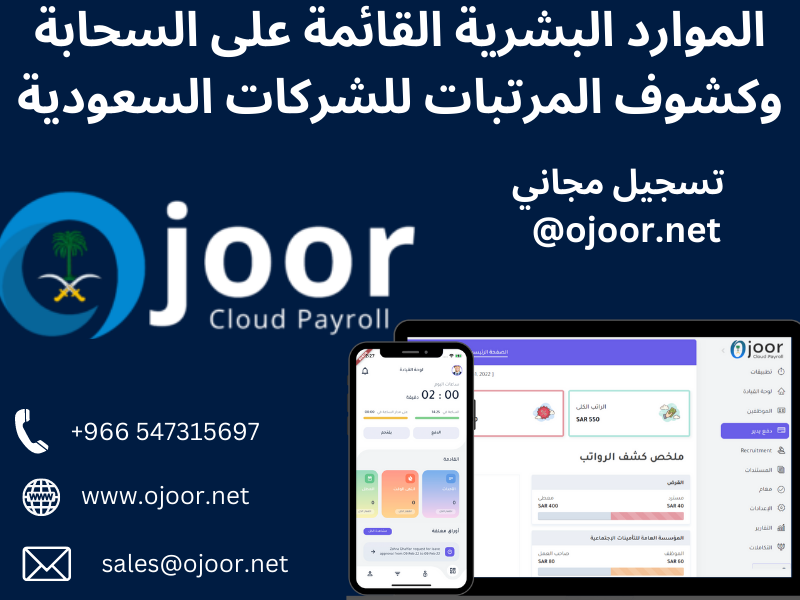PeopleQlik #1 A Learning Management Software in Saudi Arabia (LMS) is a powerful tool that manages all aspects of the learning process. Just like Microsoft Word helps us write documents, and Outlook helps us manage emails, a Learning Management System (LMS) is a software program that helps operators create, manage, and deliver eLearning courses.
Software for managing large databases has been combined over the past 20 years with digital education platforms. This partnership results in a tool that delivers and manages instructional material, identifies and evaluates individual training goals, tracks progress towards those goals, and collects data for both individual learners and the entire organization.
PeopleQlik #1 Learning management software in Saudi Arabia

Learning Management Software in Saudi Arabia Features and Benefits
Two parts make up the most common LMS:
- This server component is responsible for the core functionality of creating, managing, and delivering courses, authenticating students, and sending data and notifications.
- Administrators, students, and instructors use the user interface within a web browser like Firefox or Explorer.
What is an LMS?
An organization can use a Learning Management System to create electronic coursework, distribute it with unparalleled reach and flexibility, as well as manage its ongoing use.
An LMS allows users:
- Create Lessons and eLearning Content
- Organize The content of the courses
- Deliver The content is available to both employees/students and to the wider internet community.
- Register Students in courses
- Monitor And Assess Students (e.g. attendance, grades)
LMSs may have interactive features such as video conferencing, threaded discussion, and discussion boards.
Who uses an LMS?
The LMS was traditionally used by educational institutions. For many years, learning management software in Saudi Arabia has been used to deliver courses in schools. LMSs have been used to provide training to employees and customers for over two decades.
Any of these could be done today with an LMS:
- All sizes of businesses, large and small, are welcome.
- Non-Government Organizations (NGO) and Nonprofits
- There are many government agencies, whether municipal, provincial, or federal.
- Traditional educational institutions (schools and universities or colleges)
In 2013, the LMS market was valued at $2.55 Billion. The compound annual growth rate for this market is approximately 25.2%. The LMS market will be worth more than $7 billion by 2018.
Course creation
You can create course material from scratch by either writing the lesson directly in the LMS or by importing existing material such as a Word document or PowerPoint presentation. Advanced LMS platforms allow developers to add course material from different sources and in various formats. They even allow the inclusion of multimedia files (e.g. Video, audio, and graphics can be added to the lessons.
You can also have your course designed by professionals through LMS providers. Although this may incur a higher upfront cost, the benefits for the company often outweigh the additional expense. Professionally designed eLearning programs are more high-quality, have higher production values and include more interactive elements. Higher quality products will result in higher student engagement and retention. The program can also be resold to students or companies.
Organizing courses
After creating the eLearning materials, it is time to organize them. You can offer one course, or multiple courses in a particular sequence. This will be up to you and your student group.
LMSs should give clients the ability to design their eLearning offerings in a way that suits their needs and the structure of their company or organization.
An LMS that is more advanced offers many organizational tools that can be combined in multiple ways, giving clients maximum flexibility when it comes to how they deliver lessons. This is true whether the client has a small business or 20 locations around the globe.
Delivery of courses
The needs of an organization and the structure of its business will determine how courses are delivered.
Some courses may be restricted in scope (e.g., for employees training within a company). Some courses might only be available to employees within a company, while others may be offered as free or paid courses.
Modern Learning management software in Saudi Arabia should be capable of handling any application. This allows organizations to manage small or large numbers of students and to integrate with payment processors to pay for courses.
LMS platforms must also be mobile-friendly, offering responsive user interfaces and touch friendly interaction.
Management of users
LMS users and courses can be managed easily. This is the “M” in LMS. There are three types of LMS users.
- Administrators
- Instructors
- Students
Administrators are responsible for setting up and configuring the LMS system for an organization or company.
Instructors are responsible for preparing lessons and monitoring the progress of learners. Sometimes, the administrator and instructor may be the same person in a smaller organization.
Students, employees, and/or students from educational institutions offering general education may be learners.
The management of users includes registering them in LMS, assigning them courses, interfacing with them as instructors, determining the content they can see, organizing conference sessions and tests, grading their work, and collecting payments.
An LMS can take the hassle out of repetitive tasks by automating them and allowing users to make changes to multiple items (e.g. Students or courses all at once
Student progress can be monitored and evaluated
An LMS can track and monitor students’ progress in real-time, which is a time-saver. Administrators can access enrollment statistics, attendance records and student grades quickly via an LMS, regardless of whether they are dealing with 10 or 10,000 students.
An Learning management software in Saudi Arabia comprehensive should include real-time notifications and alerts. This could be used to notify instructors that a student has completed his homework or that a conference session is about to start.
Reporting is another important feature for advanced LMS platforms. Reporting is an essential feature of any LMS platform. It should be able to query data and display it in charts and graphs, which will allow administrators to quickly spot trends and issues.
Common Features of a Corporate-LMS
Today, there are more than 600 types of Learning Management Systems on the market. Each Learning Management System is unique and offers features that can be used to support a wide range of educators and trainers.
These are just some of the common features found in LMS platforms.
- Automatic enrollment: LMS that registers and reminds employees of mandatory courses.
- Enhanced Security: Many corporate LMS systems have one sign in, advanced authentication, firewalls, and data security.
- Rosters Digital roll-call sheet to track attendance and send invitations to class members.
- Distributed student and instructor base: Remote participation by the pupil or instructor allows courseware to include multiple experts or teachers from around the world.
- Calendars for courses: Publication of important dates, including test deadlines, that are related to course schedules.
- Student Engagement: Students can interact with each other through instant messaging, email and discussion boards.
- Assessment and evaluation: Create knowledge retention exercises, such as quick quizzes or comprehensive exams.
- Grading and Scoring: Advanced tracking and charting of student performance.
Advanced LMS features
These are just some of the basic features that a learning management system in Saudi Arabia can include. There are also many advanced features that may be added to it, such as:
- Shop online: You can sell courses to third parties and integrate with payment processors like Stripe and PayPal.
- e Conferencing: Ability to host e-conferences with multiple students via audio and video.
- Excel Uploader: Administrators can create multiple accounts using MS Excel and upload hundreds of training and classroom records. They can also download reports in minutes.
- Whiteboard: Online whiteboard functionality allows students and instructors to create and share writings and drawings simultaneously.
- Mobile friendly: Ability to use the LMS on mobile devices (smartphones or tablets), as well as being able study offline.
- SCORM compliant: Integration with third-party systems and the ability to exchange data via eLearning standards like SCORM or Tin-Can.
- Branding: LMS systems can be customized to incorporate a company’s branding or create their own themes.
Conclusion
An LMS is a technology tool that allows you to offer online education and training. LMSs allow clients to easily create, deliver, organize, manage, and track the progress of multiple users. Additional features such as custom branding and payment management are possible with an LMS. Learning Management Systems (LMS) are the future of training.
Learning management software in Saudi Arabia in Mecca, Medina, Riyadh, Khamis Mushait, Yanbu, Jeddah, Dammam, Unaizah, Uqair, Ha’il, Ta if, Al Bahah, Dhahran, King Abdullah Economic City, Najran, Diriyah, Qatif, Khafji, Jubail, Abqaiq, List of Cities and Towns in Saudi Arabia, Ras Tanura, Turubah, Jazan Economic City, Knowledge Economic City, Medina, Khobar, Abha, Tabuk, Saudi Arabia,
Call us at +966547315697 or contact sales@bilytica.com for a demo. The Learning Management Software in the Saudi Arabia team will be happy to serve you.
We also provide
Learning management software in Saudi Arabia services solutions company in Hafar Al-Batin, Udhailiyah, Al-Awamiyah, Hofuf, Hautat Sudair, Buraidah, Tayma, Duba, ‘uyayna, Saihat, Al-Kharj, Al-ula, Jizan, Rumailah, Ar Rass, Arar, Shaybah, Al Majma’ah, Rabigh, Dhurma, Haradh, List of Saudi Cities by Gdp Per Capita, Badr, Sudair Industrial City, Baljurashi, Shaqraa, Al-Khutt, Habala, Ad Dawadimi, Dawadmi, Layla,
HR System in Saudi Arabia in Haql, Afif, Al-Abwa, Farasan, Al-Jaroudiya, Thadig, Al-Thuqbah, Al Wajh, Almardmah, Al-Zilfi, Muzahmiyya, Prince Abdul Aziz Bin Mousaed Economic City, Tharmada’a, Skaka, Um Al-Sahek, Sharurah, Tanomah, Bisha, Dahaban, Al Qunfudhah, Qurayyat, Saudi Arabia, Ha’ir, as Sulayyil, Al Lith, Turaif, Al-Gway’iyyah, Samtah, Wadi Ad-Dawasir, Az Zaimah, Safwa City, Jalajil, Harmah, Mastoorah, Hotat Bani Tamim, Jabal Umm Al Ru’us, Rafha, Qaisumah, Al-Ghat, Hajrah, Al-Hareeq. Excerpt: Jeddah (also spelled Jiddah, Jidda, or Jedda; Arabic: Jidda) is a Saudi Arabian city located on the coast of the Red Sea and is the major urban center of western Saudi Arabia.
Click to Start Whatsapp Chatbot with Sales
Mobile: +966547315697
Email: sales@bilytica.com
HR Solution in Saudi Arabia
HR Software in Saudi Arabia
Benefits Of HR Management in Saudi Arabia
HR Software in Saudi Arabia
HRIS Software in Saudi Arabia



